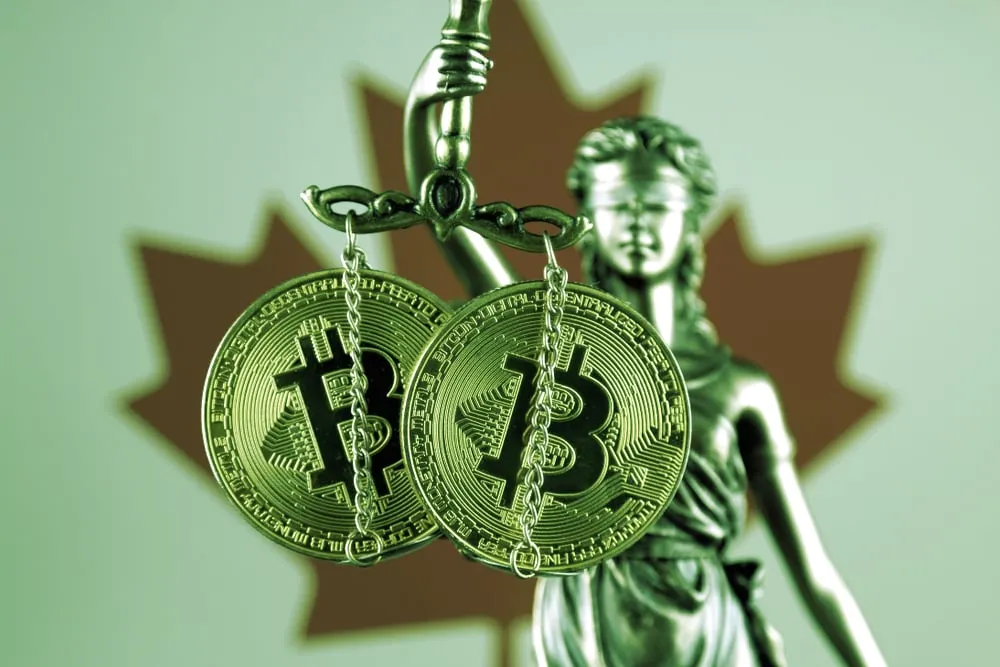Although the intention was to migrate all funds to the new 2/3, we had an issue with Nunchuk because of transaction volume and could only transfer approx 14.6 btc
This was loaded into 100 envelopes and handed out to truck drivers transparently over 24hrs
— ₿ diplomat (@NobodyCaribou) February 25, 2022
Coin Prices
BTC
$64,102.00
-2.04%ETH
$1,854.07
-1.98%XRP
$1.36
-0.85%BNB
$587.47
-2.81%USDC
$0.999995
0.01%SOL
$77.94
-1.68%TRX
$0.281973
-0.54%FIGR_HELOC
$1.031
1.50%DOGE
$0.092332
-2.65%WBT
$48.12
-1.62%USDS
$0.999975
0.02%ADA
$0.26139
-2.13%BCH
$477.42
-10.20%LEO
$7.96
-1.72%HYPE
$27.04
2.16%USDE
$0.999084
-0.05%CC
$0.160336
0.93%XMR
$324.18
3.26%LINK
$8.26
-1.85%XLM
$0.15099
-0.71%USD1
$0.999582
0.05%RAIN
$0.00944882
-0.54%HBAR
$0.095895
0.52%PYUSD
$1.001
0.10%ZEC
$240.37
-0.85%LTC
$51.45
-1.16%AVAX
$8.38
-2.16%SHIB
$0.00000599
-1.53%SUI
$0.871065
-1.84%TON
$1.32
-2.26%WLFI
$0.111183
-2.04%CRO
$0.074671
0.38%XAUT
$5,132.23
-1.20%M
$1.42
2.16%PAXG
$5,164.92
-1.24%UNI
$3.37
-0.45%DOT
$1.25
-1.78%BUIDL
$1.00
0.00%MNT
$0.588917
0.56%AAVE
$115.98
-0.27%USDF
$0.997679
-0.01%ASTER
$0.700866
1.20%PEPE
$0.00000398
-1.82%TAO
$170.61
0.72%USDG
$0.999874
-0.00%USYC
$1.12
0.00%RLUSD
$1.00
0.04%OKB
$73.95
-0.85%BGB
$2.19
-2.13%PI
$0.164386
2.71%HTX
$0.00000164
-1.57%SKY
$0.064486
1.55%BFUSD
$0.999804
0.05%ETC
$8.37
-0.48%NEAR
$0.984687
-0.08%ONDO
$0.249779
-0.79%USTB
$11.00
0.03%ICP
$2.13
3.24%POL
$0.109517
-0.14%GT
$6.77
-1.96%KCS
$8.28
-1.16%WLD
$0.381449
1.30%PUMP
$0.00179621
-4.45%ATOM
$2.05
-4.60%NIGHT
$0.057234
-4.07%QNT
$62.91
0.33%HASH
$0.01666183
-6.84%USDTB
$0.999269
-0.03%ENA
$0.099092
0.12%NEXO
$0.813419
-4.42%EUTBL
$1.23
-0.11%TRUMP
$3.38
0.59%KAS
$0.02934673
-2.33%PIPPIN
$0.784652
8.53%FLR
$0.00911522
-1.06%ALGO
$0.084478
0.22%OUSG
$114.39
0.02%USDD
$0.999815
0.01%RENDER
$1.40
1.47%JAAA
$1.027
0.01%USDY
$1.11
-0.37%XDC
$0.03358064
0.27%FIL
$0.879883
-1.75%APT
$0.83283
1.01%VET
$0.00723714
-1.07%BDX
$0.080182
0.05%MORPHO
$1.60
0.05%JTRSY
$1.095
0.04%USD0
$0.999298
0.07%ARB
$0.092628
-0.19%GHO
$0.999629
-0.03%STABLE
$0.02897814
3.29%BONK
$0.00000591
-0.55%A7A5
$0.01297024
0.66%TUSD
$0.997753
-0.17%DCR
$27.70
7.54%JUP
$0.145666
0.26%FTN
$1.087
-0.12%USDAI
$0.999714
-0.02%EURC
$1.18
-0.08%KITE
$0.25186
1.89%SEI
$0.066145
-1.34%STX
$0.239833
1.86%DASH
$32.89
0.50%PENGU
$0.00650886
1.65%JST
$0.04590167
2.15%CAKE
$1.21
-3.38%XTZ
$0.37107
0.85%VIRTUAL
$0.606675
1.26%KAU
$165.44
0.04%FDUSD
$0.999708
0.06%ETHFI
$0.497705
7.93%LIT
$1.43
3.14%IP
$1.017
-1.20%FET
$0.155722
0.46%CHZ
$0.03423723
0.85%CTM
$0.078133
-2.37%PRIME
$1.02
-0.02%USX
$0.999758
-0.01%CRV
$0.224277
0.40%NFT
$0.00000033
-0.44%BTT
$0.00000033
-2.06%INJ
$3.21
-5.59%GNO
$119.51
0.43%SUN
$0.01641001
-1.51%KAIA
$0.053263
-2.18%ADI
$3.17
0.67%ZRO
$1.52
-0.07%BSV
$15.09
-0.90%AERO
$0.32248
8.01%PYTH
$0.051185
1.21%CRVUSD
$0.993422
-0.58%IOTA
$0.066303
-0.03%GRT
$0.02620822
0.34%JASMY
$0.00564796
-1.47%FRAX
$0.992534
0.09%FLOKI
$0.00002822
-0.13%OHM
$17.21
0.43%SPX
$0.28905
4.30%BTSE
$1.65
2.35%TIA
$0.302221
0.74%HNT
$1.42
3.71%LDO
$0.30116
0.99%CFX
$0.04891077
-0.33%OP
$0.117798
-3.58%H
$0.136323
-9.70%AB
$0.00247095
-0.49%TEL
$0.00252914
-2.55%SIREN
$0.326314
14.27%2Z
$0.068588
0.53%SYRUP
$0.202727
-3.70%ENS
$6.09
-0.07%NUSD
$0.998487
-0.15%STRK
$0.0417594
0.47%MON
$0.0206441
4.03%YLDS
$0.999957
0.00%USDA
$0.988473
0.45%USTBL
$1.075
0.00%AUSD
$1.00
0.03%SAND
$0.079712
0.18%UDS
$1.69
1.62%AXS
$1.24
0.19%FT
$0.10107
-66.29%TWT
$0.500132
0.52%BCAP
$22.79
-0.31%ZBCN
$0.00207068
0.95%WIF
$0.20105
-1.38%PENDLE
$1.21
-0.65%APEPE
$0.00000095
-0.33%ULTIMA
$5,229.19
-1.41%LUNC
$0.00003507
1.65%PC0000031
$1.00
0.00%XPL
$0.087431
0.43%BORG
$0.190606
-0.71%FF
$0.079915
2.89%THETA
$0.186796
0.49%NEO
$2.63
-0.78%VSN
$0.051611
-1.35%FDIT
$1.00
0.00%ZK
$0.01925498
-2.65%XCN
$0.00477897
-1.56%MANA
$0.091805
-0.94%BAT
$0.116809
0.09%COMP
$17.95
2.51%RIVER
$8.80
10.11%BARD
$0.759207
-1.92%IUSD
$0.999502
-0.01%SENT
$0.02308866
-0.54%WFI
$2.08
0.19%GALA
$0.00351306
1.25%9BIT
$0.02006475
0.02%MX
$1.79
-0.15%CVX
$1.77
-0.53%KOGE
$48.00
0.00%VVV
$3.64
-3.78%DEXE
$3.42
18.17%RAY
$0.593919
2.09%SATUSD
$0.994746
0.01%TIBBIR
$0.158511
6.39%REAL
$0.050356
-1.58%EURS
$1.26
-0.24%FLUID
$1.97
-2.45%USDF
$0.998442
0.05%S
$0.03992122
1.80%GUSD
$0.999654
-0.02%THBILL
$1.013
-0.10%XEC
$0.00000748
-1.09%GLM
$0.149314
-5.27%FARTCOIN
$0.147022
-2.10%TRAC
$0.318396
-0.97%SKR
$0.02480866
27.77%WEMIX
$0.30288
-1.38%0G
$0.639074
0.58%RUNE
$0.388473
-0.59%IMX
$0.15904
1.14%MWC
$12.15
-5.79%ZANO
$8.72
-1.64%ACRED
$1,097.71
0.05%BERA
$0.601553
7.74%GOMINING
$0.318514
-1.10%RLB
$0.073763
2.19%A
$0.078251
-1.89%DOLA
$0.994637
-0.11%SFP
$0.251998
-2.16%EGLD
$4.27
-1.89%OZO
$0.131572
2.04%JTO
$0.282686
1.17%B
$0.124708
-4.01%COCO
$0.125271
-2.51%1INCH
$0.087674
-1.20%COW
$0.219555
0.59%AR
$1.88
0.06%AMP
$0.00145816
0.19%BAN
$0.122618
-7.53%SNX
$0.357351
-9.39%KTA
$0.248198
-0.63%PUSD
$1.001
0.00%LION
$0.00392543
2.02%WAL
$0.073493
-0.56%CASH
$0.999901
0.01%CUSD
$0.998471
-0.29%QRL
$1.46
11.39%GRX
$11.84
1.83%EIGEN
$0.187907
1.25%LPT
$2.25
1.48%REUSD
$1.062
-0.02%BMX
$0.328644
-2.95%FRXUSD
$1.00
0.06%
